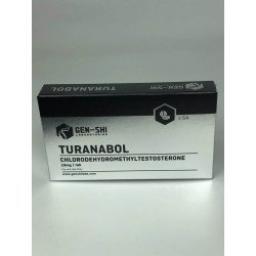How much fat on a low-fat diet?
Q. On a low-fat diet, how many grams of fat per day is considered low-fat? Is it based on total fats or saturated fats?
A low fat diet usually contains around 40g of total fat a day. Nutritionists recommend cutting out unhealthy saturated fats where you can and achieving this fat allowance from healthy mono- and polyunsaturated fats found in oils, spreads, nuts, avocados and hummus. As a guide, 20 grams of fat is found in one third of a large avocado, one tablespoon of oil, 5 teaspoons of spread or 40 grams of nuts.
Grapefruit for slimming
Q. Does grapefruit have special ‘slimming’ qualities if you’re trying to lose weight?
Sadly no. Grapefruit cannot dissolve fat or burn up kilojoules. Half a large grapefruit offers 250 kilojoules (60 calories), about the same as an orange, apple or a slice of bread. Grapefruit are low in kilojoules – but not completely devoid. Their other dieting assets are that they are a rich source of vitamin C and they take time to eat, thus ensuring that you pace your eating.
Skipping breakfast?
Q. I am trying to lose weight, so should I skip breakfast to save on calories?
Missing breakfast is the worst thing you can do if you are trying to lose weight. Breakfast is important as it seems to ‘switch on’ your metabolism after the night’s sleep and prevents mid-morning snacking on biscuits and pastries. Nothing could be faster than a bowl of wholegrain cereal with milk; if you’re really pressed for time, try freezing some sandwiches on the weekend and take one out to eat each morning.
Which diet is best?
Q. Is there one diet that can get rid of your excess fat better than another?
Regardless of whatever ‘gimmick’ they use, all diets work on the same principle – reducing your intake of kilojoules one way or another.
Researchers in the US have compared the success of four popular weight loss diets – Atikins, Weight Watchers, the Zone and Ornish (a strict semi-vegetarian diet) – when followed for one year.
Their results revealed that the diet made little difference! All were successful in lowering body weight by between 4 to 6kg over the year. But the study proved just how hard it is to stick to a diet for a long period. Just under half those that began the diet comparison were not able to last the year!
So which diet is best? The answer is the diet YOU can stick for the long haul it takes to shed your excess weight.
Reference: Dansinger et al. Comparison of the Atkins, Ornish, Weight Watchers and Zone diets for weight loss and heart disease risk reduction: A randomised trial. J Am Med Assoc 2005:293;43-53
Afternoon cravings
Q. I am trying to lose weight but am finding it hard due to cravings. I especially crave carbs during the afternoon.
Cravings can undo all your diet and exercise strategies and trying to overcome them is important to dieting success. They can be a way of comforting ourselves and soothing away anger or resentment (perhaps over a very restrictive diet regime?). They may also indicate our meals are not adequate or balanced.
It is my belief that the best insurance against cravings is to make sure you’re eating healthy balanced meals, with a generous serve of protein, some low GI carbohydrate and plenty of fill-you-up vegetables or salad – especially at lunch time. This will ensure that any physical causes for the cravings are dealt with, particularly those late afternoon or early evening ones. Planning to have a sensible snack at these times can help too so it’s not all denial and ‘willpower’. If you still suffer from cravings, then you need to look in to other reasons why you want food.
Shrink that stomach
Q. Can you shrink your stomach?
Yes, according to new research. This is a topic that’s been controversial for years but now results from a US study show that this ‘wives tale’ may have some truth to it.
By carefully measuring stomach volume with small inflatable balloons, researchers discovered that overweight people tended to have larger stomachs with a greater capacity. Heavier people took longer to feel full and consumed 945 more kilojoules (225 calories) at maximum satiation than did normal-weight subjects.
The take-home lesson? Don’t wait to feel stuffed full before you stop eating – consider portion sizes and stop eating when you’re just comfortable but not overly so!
Reference: Silvia Delgado-aros et al Independent influences of body mass and gastric volumes on satiation in humans. Gastroenterology 2004;126(2):432
Is alcohol fattening?
Q. Could you tell me what effect alcohol has on body fat as there is no actual fat in it?
Remember that ANY food or drink – no matter how much fat it contains – can cause weight/fat gain if you eat/drink too much of it. This is because it is the total kilojoules (kJ), not the total fat in your diet, that really counts toward excess weight.
Reducing the fat in your diet will help cut kilojoules. This is because fat is kilojoule dense (37 kJ per gram). But so too is alcohol (29kJ per gram). Weight for weight, alcohol and fat are roughly twice as fattening as carbohydrate or protein.
Having said that, alcohol helps you relax and loosens inhibitions so you may end up eating more after a couple of drinks that you would otherwise. There’s also plenty of research showing alcohol has an appetite-enhancing effect which is why it’s traditionally served as an aperitif before dinner. It seems people drink alcohol IN ADDITION to their regular fare – in other words, alcohol doesn’t substitute for a potato or a slice of bread. It’s consumed as well as them!
So, if you are watching your weight, keeping fat and alcohol intake in check will go a long way to keeping your weight in check.
Dud diets?
Q. I need to lose some weight. What should I look for when the next new diet book or celebrity diet appears?
Not all diets are sustainable for more than a few days nor do they meet your nutrition needs day to day. It pays to be critical and scrutinize what they ask you to eat before you embark on one as research shows.
Twenty of the most popular diet books were independently evaluated in a study by Australian dietitians at the University of Wollongong. Only five of these books were rated acceptable, meaning that the diets meet dietary and public health guidelines. The rest were fat diets, while a few were even considered unsafe.
Dud diet books tend to have 5 unhealthy features in common. The researchers suggest if your diet books says any of the following five, give it the flick:
1. Banning or promoting certain foods or food groups
2. Implying that a food can change body chemistry
3. Blaming hormones for weight control
4. Recommending supplements and special ‘health foods’
5. Promising quick, even miraculous, results
Reference: Williams L and Williams P. Evaluation of a tool for rating popular diet books. Nutr & Diet 2003;60:187-197
Five reasons you aren’t losing weight
Q. I’m always trying to lose that last 5 kilos but I never seem to take it off and keep it off. What am I doing wrong?
Generally there are 5 main reasons why you’re not shedding that weight long term, even though at times you may be eating light and watching the fats and snacks. Here’s what they are – see if this fits you:
1. You aren’t doing enough exercise
2. Your portion sizes are too large
3. You eat on the run
4. You are an emotional eater (you turn to food when things are bad)
5. You forget healthy eating on the weekends
How to gain weight
Q. I need to gain weight, but don’t seem to be able to no matter what I eat. What do you recommend to people who want to gain weight?
The secret to eating for weight gain is to eat regularly – three to six times a day – and include foods that are “concentrated” and nutrient-dense – in other words, those that will give you the most kilojoules/calories in the least volume. These foods generally include more fat than is recommended for the general overweight population so if you are worried about cholesterol choose lean meat, poultry and fish and use fats or foods with fats that are either polyunsaturated or monounsaturated. You may find it helpful to:
- Eat small and often, especially if your appetite is small or you fill up quickly
- include more healthy fat with your meals such as margarine spread thickly on toast and sandwiches, olive oil on vegetables, dressings on salad, avocados and peanut butter on bread
- snack on foods like full-fat yoghurt, flavoured milk, cheese with biscuits
- cut down on your aerobic (fat-burning workouts) and do more weights
- have a drink before dinner to perk up your appetite
- stop smoking if you do – smoking blunts your taste buds and decreases your appetite.
Best Steroid Products on Sale
Turinabol
|
Trenbolone 100
|
Durabolin 200 (2ml)
|


